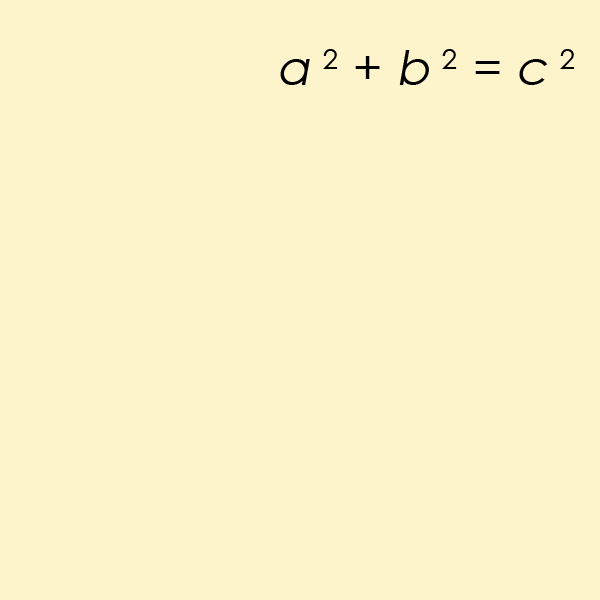I have discovered a truly marvelous demonstration of this proposition, but
 x
z
+
y
z
=
5
z
x
z
+
y
z
=
5
z
If x , y , z are integers, find the total number of triplets ( x , y , z ) that satisfy the equation above.
Image Credit: Wikimedia AmericanXplorer13 .
This section requires Javascript.
You are seeing this because something didn't load right. We suggest you, (a) try
refreshing the page, (b) enabling javascript if it is disabled on your browser and,
finally, (c)
loading the
non-javascript version of this page
. We're sorry about the hassle.
5 solutions
Moderator note:
Yes correct. Bonus question: If we add the constraint that x , y = 0 and z = 1 , is it still true that the answer is countably infinite?
Bonus question answer: no there would be only 2 solutions
Log in to reply
No, it's more than two: ( 3 , 4 , 2 ) , ( 3 , − 4 , 2 ) , ( − 3 , − 4 , 2 ) , ( − 3 , 4 , 2 ) , ( 4 , 3 , 2 ) , … .
But is still finite.
You also need to prove that x 2 1 + y 2 1 = 2 5 1 has no integer solution.
Log in to reply
The example that you gave was a triangle. A triangle cannot have sides with negative lengths. The diagram was very misleading.
no then also it will be countably infinite,because any 0^x + 5^x = 5^x
Well, take x = 0 , y = 5 and then the equation holds for any z ∈ N ∗ . This should probably not be level 3.
Moderator note:
Yes correct. Bonus question: Can you decipher what the title of this problem means?
Title: "I have discovered a truly marvelous demonstration of this proposition, but"
this puzzled me already when I started then problem... This with the gif which seems quite irrelevant ... But probably is not? Or just a false indication for solving the problem maybe. No I don't see! I don't even know if you mean pythagore or x z + y z = 5 z Arrrg no I need a hint !!
Log in to reply
The meaning of the title is more historical than mathematical. It hints to the Fermat's Last Theorem . This was the original quote by Fermat:
" It is impossible to separate a cube into two cubes, or a fourth power into two fourth powers, or in general, any power higher than the second, into two like powers. I have discovered a truly marvellous proof of this, which this margin is too narrow to contain. "
If z is negatif we can find infinite solution
Moderator note:
Even if that is true, you failed to explain why you would get infinite number of solutions.
Where's your proof?
take z=1, then x+y=5. Now take any integer x. 5-x is an integer. So every integer can give a solution.. No other option matches. Actually are -ve z also 2 be considered??
Moderator note:
Yes. It clearly said that x , y , z are integers, it did not explicit say that they are positive or negative, so you must consider both scenarios. And of course the value 0 .
Read the question again.
Every square number is the sum of odd numbers ∑(2n+1). So each successive number of square numbers is and integer odd number from each other. This results in a countably infinite number of equations.
Moderator note:
Wrong. Your logic is flawed. "So each successive number of square numbers is and integer odd number from each other." made no connection to the problem. And there is only a finite number of solutions when z = 2 .
So you're saying that you can find infinite number of solutions with z = 2 ? If so, name me 13 such solutions.
Two successive square numbers are an odd number apart. As there is an infinite number of square numbers, there is also an infinite number of odd numbers that fulfil the criteria.
Log in to reply
If you say that's true, then just name me 13 solutions, it should be a simple task since you said that there's infinite number of solutions.
at n=2, it becomes x^2+y^2=25.
that's circle eq. so, only 8 integer sol.
variations of (3,4) and (0,5)
Let z = 1 since z can be any integer. The equation now becomes x + y = 5 . If we have a solution ( x , y ) then we can also have another unique solution ( x + 1 , y − 1 ) . Since ( 0 , 5 ) is a solution then by induction we have infinite solutions for ( x , y , z ) It all comes down the domain of the variable which is only limited to the integers and nothing more.